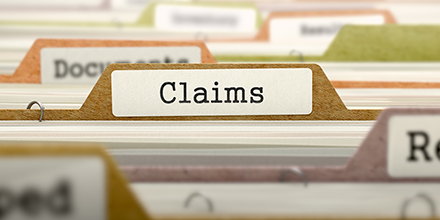D-SNPs and 2026 Medicare Advantage enrollment updates

As we approach the Medicare Advantage Open Enrollment Period, it is important for Medicaid providers to be aware of Dual Eligible Special Needs Plans (D-SNPs) and the options available to dually eligible individuals in 2026.
D-SNPs are Medicare Advantage plans designed for individuals eligible for both Medicare and Medicaid.
These plans offer coordinated care, reduced out-of-pocket costs and additional benefits tailored to members with complex needs.
Key dates
Medicare Advantage Open Enrollment runs from October 15 to December 7, 2025. During this time, dually eligible individuals can enroll in or change D-SNPs.
What’s new for 2026
Beginning in 2026, Medica, Sanford Health Plan and UnitedHealthcare will offer D-SNPs in North Dakota. Enrollment in a D-SNP is based on certain Medicaid and Medicare eligibility requirements, as well as the availability of services in the individual’s area.
Providers are encouraged to help members understand their options and refer them to resources like North Dakota State Health Insurance Counseling Program for support.
For questions, contact North Dakota Health and Human Services Dual Special Needs Plan team at hhsdsnp@nd.gov.
Tips for provider enrollment
 ND Medicaid providers play a vital role in delivering essential health care services across the state. To ensure timely enrollment and avoid unnecessary delays, it is crucial to streamline the application process from the beginning. Here is how providers can set themselves up for success:
ND Medicaid providers play a vital role in delivering essential health care services across the state. To ensure timely enrollment and avoid unnecessary delays, it is crucial to streamline the application process from the beginning. Here is how providers can set themselves up for success:
- Submit a complete application up front:
- One of the most common reasons for processing delays is incomplete information. Providers can dramatically reduce wait times by ensuring their initial submission includes:
- All required documentation (e.g., licenses, certifications, ownership information)
- Correct provider type and specialty designation
- Signed agreements and attestations
- Accurate and up-to-date contact details
- A thorough review of the Application Requirements before submission can prevent back-and-forth communication and keep things moving efficiently.
- One of the most common reasons for processing delays is incomplete information. Providers can dramatically reduce wait times by ensuring their initial submission includes:
- Respond promptly to requests for additional information:
- On behalf of ND Medicaid, Noridian may reach out for clarification or supplemental documents. Providers should:
- Monitor email and mail regularly for correspondence from ND Medicaid/Noridian
- Designate a point person to handle communications and follow ups
- Respond as soon as possible
- At the least, respond within the requested timeframe to avoid application closure or denial
- On behalf of ND Medicaid, Noridian may reach out for clarification or supplemental documents. Providers should:
- Final Tips:
- Before submitting, consider having a colleague review the application for completeness. A second set of eyes can catch small errors that might otherwise cause big delays.
For more information or to access the Application Requirements document, visit the ND Medicaid Provider Enrollment page.
Out-of-state medical care

When referring a ND Medicaid member for out-of-state care, the service must be prior authorized if the out-of-state service is at a site that is more than 50 miles from North Dakota’s border. Out-of-country services are not covered and will not be paid.
The member’s primary care provider or in-state specialist physician must submit a Request for Service Authorization for Out-of- State Services (SFN 769) form to ND Medicaid along with medical documentation to support the need for out-of-state services at least two weeks before scheduling an out-of-state appointment. A prior authorization request is needed each time the member is to be seen out-of-state.
Medical necessity for out-of-state care must be substantiated. A referral should not be made based on a member’s request or if a service is not available in the referring provider’s network. The member must be referred to an in-state provider when available. All referral attempts must be documented.
Medicaid staff will determine if the out-of-state request meets the requirements for out-of-state care and an approval or denial letter will be written. A copy of the determination is sent to the in-state referring provider(s), out-of-state provider(s), member and travel specialists at the human service zone offices.
Transfers for emergency out-of-state services may be done at the discretion of the in-state provider but are subject to a review by Medicaid staff. The transferring facility must notify ND Medicaid within 48 hours of the transfer and submit a Request for Service Authorization for Out-of- State Services (SFN 769) form. Documentation must include destination, date of transfer, mode of transportation and discharge summary. If air ambulance is used for transportation, documentation of the medical necessity to use air ambulance rather than ground ambulance must be included. It is expected that air ambulance will only be used in situations that are emergent.
If the out-of-state services are approved, a travel specialist at a human service zone office is responsible for assisting the member with the arrangements for travel, lodging and meals. To contact a travel specialist, the member can call (866) 614-6005 or (701) 328-1000.
If a member receives out-of-state care without securing prior authorization through ND Medicaid, the services will not be paid. Claims received from out-of-state providers will not be paid without written prior authorization.
Vision providers: Did you know?

You can save time with 24/7 access to ND Medicaid vision benefits through the Automated Voice Response System (AVRS).
What can you do with AVRS?
This system provides quick access to:
- Member inquiry
- Payment inquiry
- Service authorization inquiry
- Claims status
How to access AVRS
Toll-Free: (877) 328-7098, 711 TTY
Local: (701) 328-7098
When you call, you need:
- Your 7-digit ND Medicaid Provider ID (issued by the new MMIS system)
- Your 6-digit PIN (assigned to each provider ID for secure access)
For PIN information or changes, contact mmisinfo@nd.gov.
Touch Tone Phone Entry
Quick access for vision resources
Option 1 – Member Information, then Option 5 – Vision
| Function | Key | Description |
| Repeat options | * | Hear the menu options again |
| Return to main menu | 9 | Go back to the main menu |
| Transfer to Claims Call Center | 0 | Speak with a representative (Monday–Friday, 8 a.m.–5 p.m. CT) |
AVRS Options and Selections
| AVRS Options | Secondary Selections |
| Option 1: Member inquiry | Callers may select any of the following options:
|
| Option 2: Payment inquiry | Remittance advice payment information is available for the specific time frame entered. |
| Option 3: Service authorization inquiry | Service authorization information is available based upon the member ID number entered, including:
|
| Option 4: Claims status | Claim information is available based upon the member ID number entered, including:
|
Workers with disabilities program

Workers with Disabilities Medicaid coverage allows some members to work or increase their earnings without fear of losing their Medicaid coverage.
This program provides coverage through Medicaid, including dental and mental health coverage. This program requires the member to pay a premium.
Members can apply at a human service zone office.
Remind those who are already on the program that they can take steps to ensure their benefits are processed on time by:
- Submitting income/paystubs by the 5th of each month so premiums are figured correctly and timely.
- Making premiums payments by the 15th of each month (does not apply to American Indian members).
- Returning the portion of the notice that includes the client ID number when submitting payments.
- Writing the client ID number in the “memo” section of the check.
Learn more about the Workers with Disabilities program.
Pharmacy updates

We are updating our coverage policies for ADHD, respiratory, diabetes and ustekinumab biosimilar drugs.
Highlights include:
- Immediate changes to preferred ustekinumab biosimilars
- Upcoming changes to preferred drugs in ADHD and respiratory drug categories
- Upcoming concurrent use requirement for dipeptidyl peptidase-4 (DPP-4) inhibitors and metformin
Stay informed to support continuity of care and avoid prescription delays. Current coverage criteria are outlined in the Preferred Drug List (PDL). Review the full drug coverage update and transition recommendations.
Biosimilar drug coverage update
Effective July 1, 2025, Ustekinumab biosimilars are being managed.
- Steqeyma is the preferred ustekinumab biosimilar and requires prior authorization (PA).
- Members currently using Stelara must transition to Steqeyma.
- Existing Stelara PA approvals have been updated to Steqeyma to facilitate the transition.
- Selarsdi and Yesintek are Step 1 non-preferred status and require PA.
- Stelara and other ustekinumab biosimilars are Step 2 non-preferred status and require PA.
ADHD drug coverage update
Effective Oct. 1, 2025, Methylphenidate 10 mg/5 mL solution will be the only preferred non-solid dosage formulation of methylphenidate immediate release (IR).
- PA will not be required for ages 6 through 9 years.
- Start transitioning your patients now to avoid treatment disruption.
Respiratory drug coverage update
Effective Oct. 1, 2025, Advair Diskus, Advair HFA, and Airduo Respiclick will require PA.
- Dulera will be the only inhaled corticosteroid/long-acting beta agonist (ICS/LABA) inhaler that does not require PA.
- Dulera contains formoterol and can be used for single-inhaler maintenance-and-reliever therapy (SMART) as recommended in asthma guidelines.
- ND Medicaid allows up to two Dulera inhalers per 30-day supply for SMART use.
Start transitioning your patients now to avoid treatment disruption.
Diabetes drug coverage update
Effective Oct. 1, 2025, Concurrent metformin will be required with DPP-4 inhibitors.
- Members with GI intolerance to high-dose IR metformin must trial metformin ER 500 mg at minimum. Mitigation efforts also should be attempted and documented.
- According to the American Diabetes Association 2025 Standards of Care, metformin is more effective than DPP-4 inhibitors in lowering A1c and weight when used as monotherapy.
- Initiate metformin now to avoid treatment disruption.
Medicaid Drug Rebate Program (MDRP)
ND Medicaid is not able to pay for a drug when the manufacturer does not participate in the MDRP due to federal law, Sec.1927. [42. U.S.C. 1396r-8] (a).
- Manufacturers choose whether they will sign up for the MDRP.
- Manufacturer participation is outside of ND Medicaid’s control.
- An alternative, participating manufacturer’s product or different drug that is covered must be used for Medicaid to be able to pay.
Learn how to find covered alternatives
Finding covered alternatives
Use the NDC Drug Lookup to find covered alternatives. Access this tool through:
- The NDC Drug Lookup link at the top of the Acentra Health website
- The Directories dropdown at the top of the North Dakota MMIS Web Portal
Instructions on how to use:
- Search for the NDC or Drug Name (partial drug names are allowed)
- Enter the Date of Service (default is current date)
- Select the Benefit Plan 100-ND Medicaid Fee for Service (other selections may be used when appropriate)
Claims Corner

ND Medicaid continues to receive a large volume of provider appeals for timely filing improper claims submissions.
As of Oct. 1, 2025, ND Medicaid will be updating the Timely Filing Policy to include Appeals and Timely Filing Improper Claim Submissions sections to provide clear guidance to providers. North Dakota Century Code section 50-24.1-24(2) states a provider may not request review under this section of the rate paid for a particular service or for a full or partial denial, recoupment, or adjustment of a claim due to required federal or state changes, payment system defects or improper claims submission.
Improper claim submissions include submissions that fail to meet the necessary requirements or standards set by the department. For timely filing denials, if a claim denies for a violation of the timely filing policy (for example, no proof of timely filing submitted when submission time limit has been exceeded), and the provider appeals the denial without providing any new information to contest the North Dakota Health and Human Services finding, this is an improper claim submission which is not appealable. If you received a timely filing denial and had originally filed the claim within the appropriate time limits, the original TCN and RA date are required to be included on your new or adjustment claim (as proof of timely filing) and be resubmitted (not appealed) within 365 days from the date of service (see Timely Filing Policy for retroactive eligibility exceptions).
Effective Oct. 1, 2025, improper claim submission appeals will be rejected and returned to providers.
Contact the provider call center with questions at (877) 328-7098.
